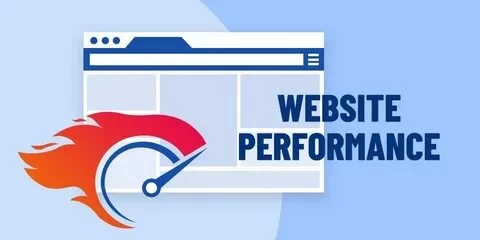Are you worried about your PHP website’s performance? If you want a successful web application, performance should be your primary concern. A slow site will distract your users and affect your SEO ranking. That is why optimizing PHP website performance is not optional—it is an important part of building a strong online presence.
In this blog, we’ll learn why performance matters and how to optimize your PHP app in 12 easy steps, along with why to hire dedicated PHP developers for better performance.
Why PHP Website Performance Should Be a Priority
Whether you are a developer who is optimizing existing projects or a business leader looking to hire PHP developers for a new project, understanding the steps to optimize PHP application performance is important. Here is why it matters:
- Improved SEO ranking
- Reduced bounce rate
- Lowers server cost
- Easy debugging and maintenance of code
Therefore, performance optimization of PHP apps is an easy method to tackle frustrated users and failed sales.
12 Steps to Optimize PHP Website Performance
Let’s learn the 12 easy steps of how to maximize the performance of PHP apps, including the use of the latest PHP version, caching mechanisms, enhancing code, and many more.
1- Use the Latest PHP Version
Each PHP version comes with the addition of performance optimization features and patches. The following features are added in PHP latest version of PHP 8.3:
- Enhanced JIT (Just-In-Time) compilation, which changes PHP code into machine language, so the app runs faster
- Improved memory handling so the server does not get overloaded when the application is running
- Introduced ready-to-use PHP functions like string or array operations
- Upgraded type safety and new language features such as readonly classes, json_validate function, and improvements to type handling to reduce the chances of errors
Furthermore, new PHP versions also provide security patches to fix bugs and security flaws.
2- Implement Caching Mechanisms
Caching makes sure your website remembers everything it has already done, so it doesn’t take time to load. You can use the following types of caching in PHP to improve performance:
- OPCache saves compiled PHP code in memory so the application does not have to recompile it on every request
- Page caching stores HTML pages so they show up right after the user’s demand
- Object or data caching stores regularly used data with the help of Redis or Memcached to reduce database queries
- Browser caching informs the browser to store static files such as CSS, JS, or images
- Fragment caching stores a specific part of the page, like headers or widgets
Most businesses hire dedicated PHP developers to leverage these caching tools to make apps run smoothly.
3- Write Clean PHP Code
It is important to write clean and efficient code for your application, which is possible by following tips:
- Not to use redundant loops and calculations
- Eliminate unused variables
- Use easy-to-understand functions and variables
- Avoid deep nesting of if/else blocks
To ensure your code is clean, efficient, and performance-ready, you can also have the option to hire remote PHP developers for more enhanced PHP code.
4- Select the Right PHP Framework
PHP provides a wide range of frameworks such as Laravel, Symfony, or CodeIgniter. All of these already have built-in performance-enhancing features like:
- Laravel: Ready-to-use caching support, queues, and eager loading
- Symfony: HTTP cache and Symfony Profiler
- CodeIgniter: Lightweight and output caching
- Yii: Data caching and Gii code generator
If you still need more tailored solutions, custom PHP development is the right choice to maximize the performance of your project, depending on its needs.
5- Optimize Database Queries
The performance of your PHP application greatly matters in the response time, which is managed by database queries. By following these steps, you can write efficient database queries:
- Avoid using SELECT* excessively; use it wisely to transfer only the required amount of data
- Add indexes to often queried columns, such as with WHERE, JOIN, or ORDER BY clauses
- Stop running queries inside multiple loops to reduce the chances of unwanted calls
- Apply prepared statements to safe queries and protect against SQL-like threats
- Use LIMIT in queries to find only the required results from the database
As these steps are simple, this is the reason database optimization is the most powerful way developers can use to build scalable and dynamic websites.
6- Reduce HTTP Requests
When a user loads a web page, all HTTP requests start to load at once to collect images, CSS files, JavaScript, fonts, headings, etc. The greater the number of requests there would be, the greater the load the app will have, which will slow it down. With the following steps, you can reduce the number of HTTP requests:
- Merge JavaScript and CSS files
- Reduce the number of external libraries
- Apply image sprites and inline SVGs
This will reduce the load, and data will be loaded in less time, even for users with weak internet connections.
7- Compress with GZIP
One of the best methods to compress files is using the GZIP compiler. You can apply it to a server, which will reduce the size of CSS, JavaScript, and HTML files. Apache and Nginx are servers in PHP where you enable GZIP compression.
8- Make Use of Content Delivery Network (CDN)
With the help of CDN, files are stored and delivered rapidly when required. To make this process faster, you can apply it in easy steps:
- Choose a CDN provider
- Built a new account
- Attach your website to the CDN
- Upload file links
- Test the speed of your site
If you are still confused, you have the option to hire dedicated PHP developers to enhance the performance with CDN integration.
9- Optimize Images
It is essential to compress the size of images, so your app does not get overloaded. It can be simply done with the help of tools like Imagick, GD library, or TinyPNG API. Also, fix the proper dimensions.
10- Often Track Performance
Tracking the performance of the PHP app will let you know where the bottlenecks are and how to solve them. It can be done with the help of different tools like:
- Google PageSpeed Insights
- GTmetrix
- New Relic
These not only identify the problem but also suggest how to solve it.
11- Disable Unused PHP Extensions
Disabling unused extensions is one of the most intelligent ways to reduce the burden of the application. It can be done with the following procedure:
- Find the enabled extensions
- Identify unused ones
- Edit the php.ini file
- And restart the web server to confirm
Never delete extensions on which your app depends, like mysqli, curl, and json.
12- Use Autoloading Smartly
PHP developers can use autoloaders to automatically load files throughout the base. There are two ways to do it:
- Manual autoloading with spl_autoload_register()
- Composer autoloading with PSR-4, classmap, and files autoloader.
It is always recommended to use composer autoloading for complex projects.
Why It’s Smart to Hire Dedicated PHP Developers for Better Performance?
To leverage all the performance optimization tools, features, and methods on your PHP project, it is the right move to hire experienced PHP developers. Devace Technologies provides skilled and experienced PHP developers who know how to enhance code, apply caching mechanisms, and handle servers and databases smartly. They will ensure that slow sites turn into high-performing applications.
Conclusion
Website performance in PHP means ensuring your app runs smoothly. If not, it can be done with some easy steps. These include upgrading to the latest PHP version, using caching mechanisms, reducing HTTP requests, deactivating unused extensions, and applying Composer autoloading. It is always the right decision to hire dedicated PHP developers who understand performance optimization methods and tips well.

Lexy Summer is a talented writer with a deep passion for the art of language and storytelling. With a background in editing and content creation, Lexy has honed her skills in crafting clear, engaging, and grammatically flawless writing.



